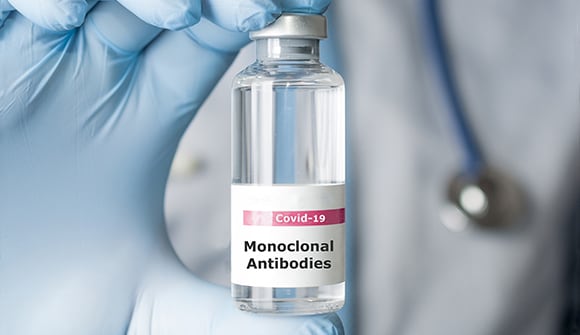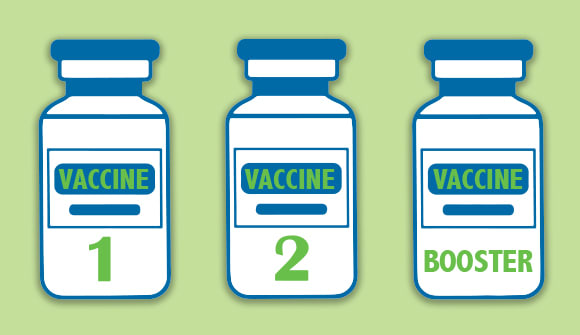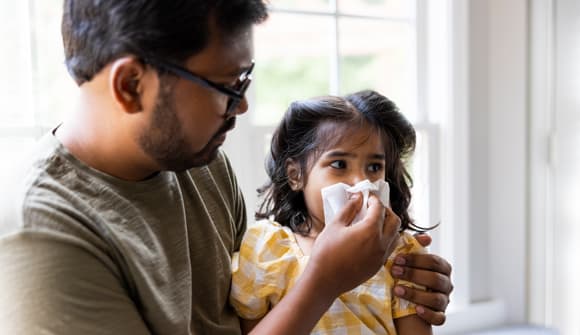Monoclonal antibodies and you
Top things to know about the COVID-19 treatment.
Article Date:

COVID-19 vaccines are widely available throughout the country, yet the number of new virus cases continues to rise, fueled by the start of school, summer holiday gatherings and relaxed masking and social distancing rules. This has led to a parallel rise in treatment options and at-home remedies – some not approved or recommended by health experts (livestock de-wormers, anyone?) and others more scientifically backed, such as monoclonal antibody therapy.
Experts emphasize that the best tool in the fight against COVID-19 is a vaccine, but if you find yourself ill with the virus, monoclonal antibodies may help. Here's what you need to know.
What are monoclonal antibodies?
These laboratory-made proteins mimic the immune system's ability to fight antigens, such as viruses, and prevent progression to severe illness. They are derived from the plasma of recovered COVID-19 patients and administered as an intravenous (IV) infusion or subcutaneous injection (needle inserted just under the skin). In addition to COVID-19, monoclonal antibodies are used to treat diseases like cancer and asthma.
Who qualifies?
Monoclonal antibody therapy is recommended for people aged 12 and older with mild or moderate COVID-19 who are at high risk for progressing to severe symptoms or hospitalization.
According to the Florida Department of Health (FDOH), monoclonal antibody treatment is most effective when given early and the sooner it is given, the better. There is not a time limit to receive the medication, however it must be delivered prior to the occurrence of severe illness.
At Baptist Health, the therapy has to be administered within 10 days of a patient first showing symptoms of COVID-19, and before onset of serious illness.
For residents of Florida, the FDOH statewide sites are also available for people who have been exposed to COVID-19 and are at high risk for severe illness, even prior to testing positive.
The treatment is available to all eligible individuals, regardless of vaccination status.
How is it administered?
The IV therapy takes about two hours. The actual infusion takes about an hour and then patients are observed for an additional hour to monitor for any reactions. The subcutaneous injection takes about an hour and a half total, including injection and monitoring.
Where can I get monoclonal antibody therapy?
The Florida Department of Health operates treatment sites throughout the state. An appointment is not required; however, patients can register in advance at patientportalfl.com. A referral is not needed. Non-Florida residents should check their state's COVID-19 websites for locations near them.
Baptist Health offers monoclonal antibody therapy to patients who meet certain criteria, as capacity permits. Patients must have a referral from a Baptist Health provider. Talk to your primary care physician to learn more.
If this treatment is available, why should I get vaccinated?
"Monoclonal antibodies are not a replacement for a vaccine," said Ameen Pirasteh, PharmD, an infectious diseases pharmacist with Baptist Health. "The treatment is used after a patient has been exposed to or has developed COVID-19. Vaccines are meant to prevent people from getting ill, or to help reduce the severity of the illness. If you get a vaccine, you hopefully won't need to receive monoclonal antibodies!"
At Baptist Health, we want to help keep our community informed about COVID-19. For more information about COVID-19 vaccines visit baptistjax.com/covid19vaccine. For questions about COVID-19 symptoms, call 904.420.4842. For more information about the Florida Department of Health monoclonal antibody therapy treatments and locations, click here.



